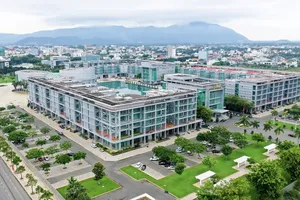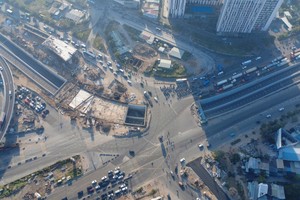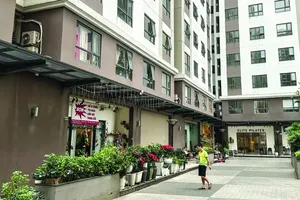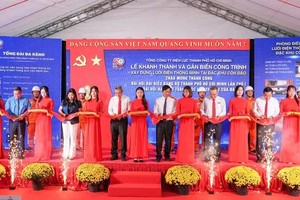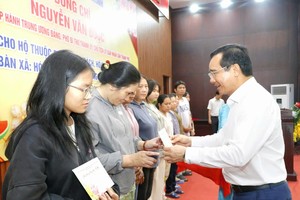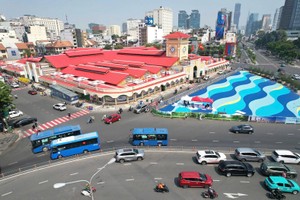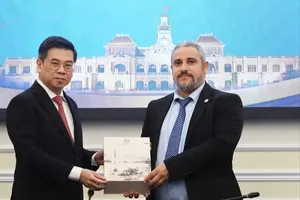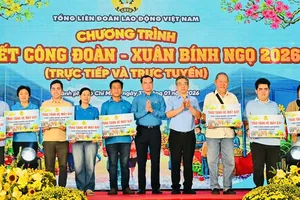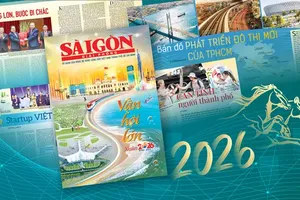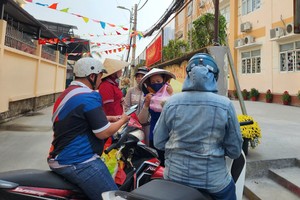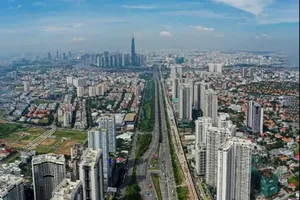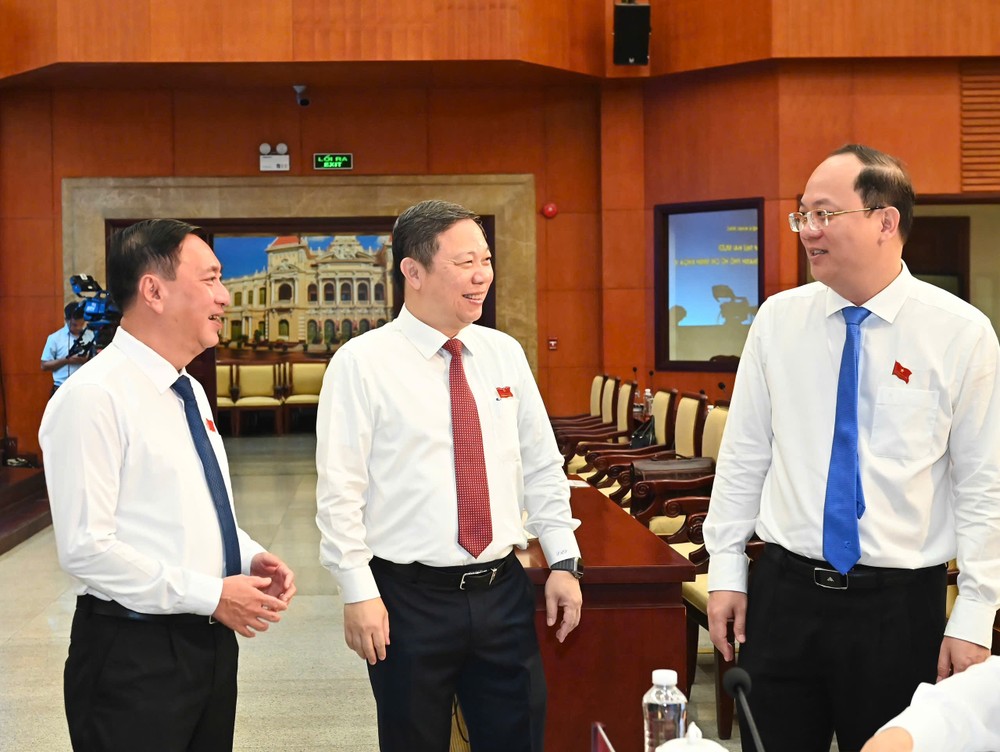
Economic growth across various sectors
Vice Chairman Duong Ngoc Hai of the HCMC People's Committee reported on the progress of the 2024 work theme: "Determined to effectively implement Digital Transformation and Resolution No.98/2023/QH15 of the National Assembly" at the opening session of the 20th conference of the 10th tenure of the HCMC People's Council on the morning of December 9.
The HCMC People's Committee assessed that the implementation of the 2024 work theme has generated momentum to accomplish the socio-economic development targets. Of the 21 key socio-economic indicators for 2024 (from 18 target groups), 17 are expected to be met or exceeded, one is yet to be announced but aims to be achieved, and three are projected to fall short.
The total state budget revenue is estimated to exceed VND502.75 trillion, reaching 104.12 percent of the target, up 12.01 percent compared to the same period last year. The city continues to enhance the application of science and technology in industrial development, with the four key industrial sectors remaining the main drivers of growth.
The Industrial Production Index (IIP) for 2024 is projected to rise by 6.8 percent year-on-year, with stable industrial production growth indicating the recovery and development of the city's industrial sector. Retail sales and consumer revenue are expected to increase by 10.5 percent, while export turnover is estimated to reach US$46.9 billion, an increase of 10.4 percent.
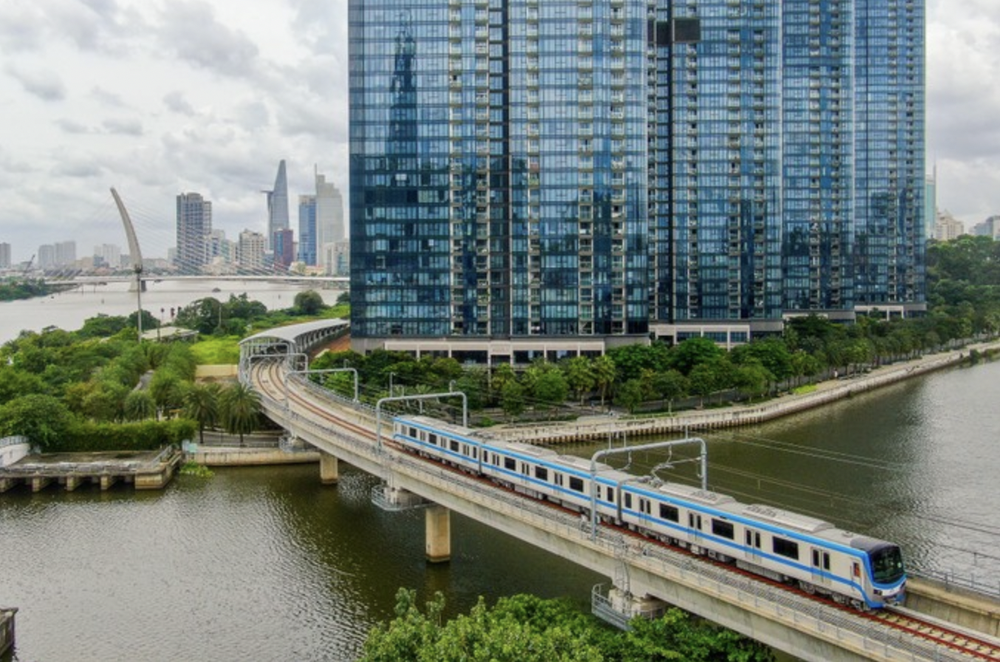
E-commerce activities have seen strong growth, driving a significant expansion in transportation services. Public passenger transport volume is expected to increase by 21.5 percent. The tourism sector continues to experience robust growth, with total revenue up by 18.8 percent, and international visitors to the city expected to reach 6 million, up 20 percent.
The labor and employment situation has improved, with various effective and diversified labor supply-demand connection activities. The rate of workers submitting unemployment claims has decreased by 11.62 percent compared to the same period in 2023. Efforts to reduce poverty sustainably and ensure social welfare remain a priority.
Digital transformation is being implemented comprehensively across four pillars, with a focus on advancing the digital transformation revolution in key areas.
HCMC has applied information technology in government operations through various systems. The city has also launched the HCMC Institutional Implementation Map to track and evaluate leadership, administration, and the quality of public services for citizens and businesses in online administrative procedures and public services.
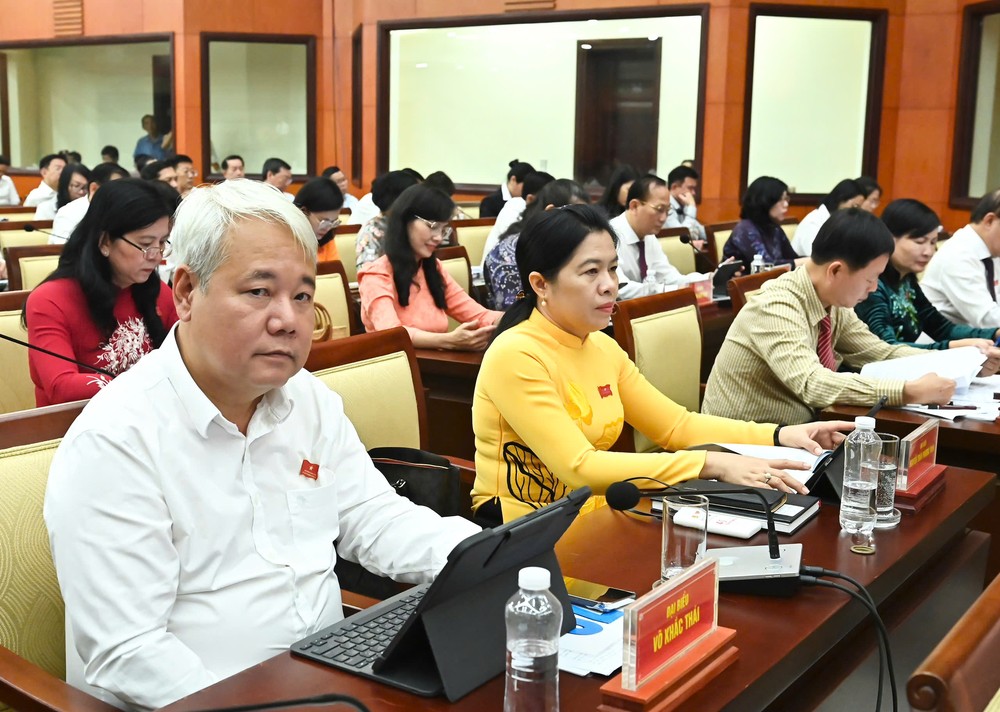
HCMC has met several digital economy targets, including 12.88 percent of businesses in the digital technology sector (33,453 businesses offering telecommunications and IT services), 11.63 percent of businesses in the digital platform sector (30,190 digital platform businesses in the city), 16.7 percent of retail sales from e-commerce, 82 percent of businesses using electronic contracts, 71.18 percent of small and medium-sized enterprises adopting digital platforms, and 95.21 percent of businesses using electronic tax filing.
The percentage of residents with digital identities and electronic identification accounts has reached 100 percent. A total of 2,048,702 digital signatures have been issued to citizens, covering 34.7 percent of the adult population.
According to the Ministry of Information and Communications, HCMC's digital economy has grown steadily each year. Specifically, it grew by 15.38 percent in 2021, 18.66 percent in 2022, 21.5 percent in 2023, and is projected to reach 22 percent in 2024.
VND11.287 trillion allocated for additional income payments
The implementation of Resolution No.98/2023/QH15 has provided a strong impetus for HCMC's economic and social recovery, helping to unlock resources and resolve challenges. It has also promoted decentralization and authorization in public administration, simplifying procedures for greater efficiency.
Several policies have been successfully put into practice, receiving broad support, particularly in investment management, finance, urban development, science and technology, and government organization. The city has allocated VND3.79 trillion for poverty reduction and job creation. It has identified seven TOD development projects along Metro lines No.1 and No.2 and Ring Road No.3, as well as 41 public-private partnership projects in health, education, and culture. Additionally, five BOT road projects have been launched, with VND50 billion set aside for planning.
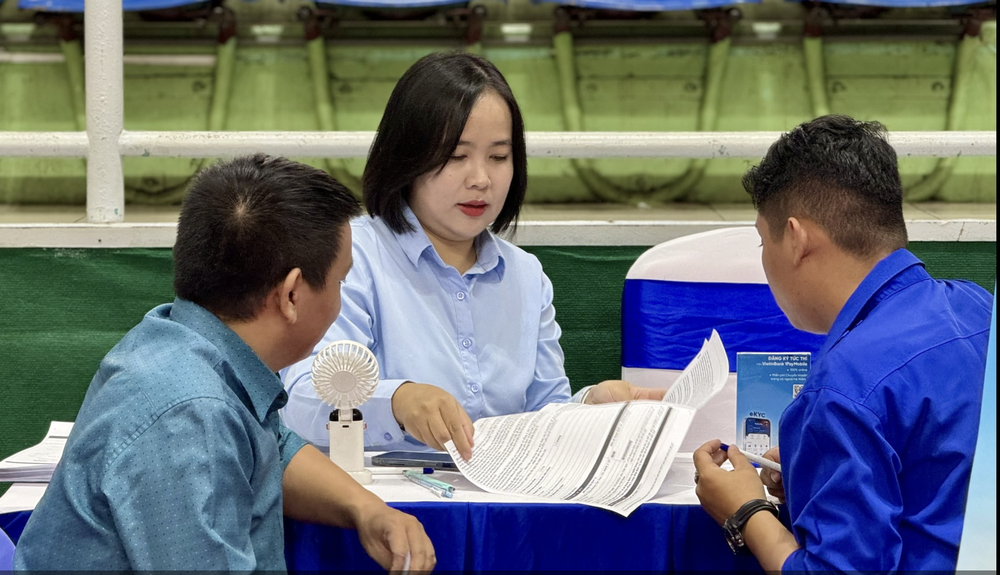
HCMC has allocated VND11.29 trillion from the city’s salary reform budget for additional income distribution. Regarding the District People's Committee’s budget expenditure estimate, an unallocated amount of 2 percent to 4 percent has been set aside, with the 2024 budget allocating a maximum of 4 percent, totaling VND688.6 billion.
The city has noted that, with the implementation of Resolution No.98, the urban government model in Thu Duc is functioning smoothly. The decentralization and authorization mechanisms have been effectively implemented, contributing to faster land clearance, over 98 percent investment capital disbursement, and improved public service efficiency for citizens and businesses.
Advancing digital transformation and implementing Resolution No.98
In the coming period, HCMC aims for rapid and sustainable development based on science, technology, innovation, digital transformation, and the knowledge economy. Digital transformation will be aligned with green transition, integrating green and digital industries. The city prioritizes investment in digital infrastructure to create new development opportunities.
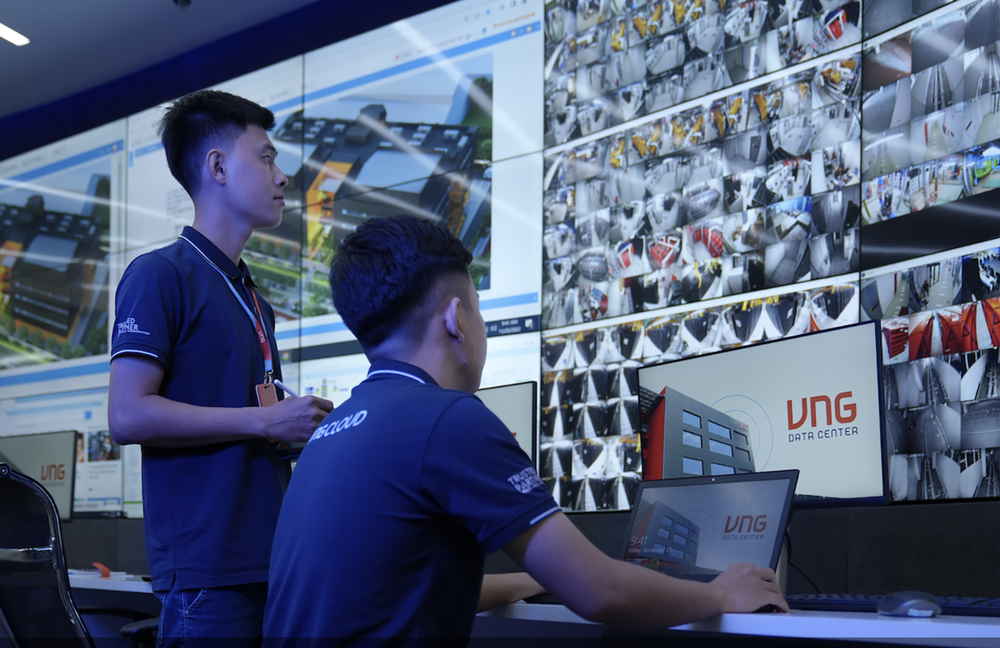
The HCMC People's Committee has outlined key tasks, including establishing regulations and policies for e-government implementation and improving the quality of public administration in the digital environment. The city will continue to advance its data management strategy and enhance systems for handling administrative procedures, ensuring better service for citizens and businesses.
The city will implement effective digital management systems, focusing on AI solutions and utilizing population data. It will roll out platforms for local governance, civil servant management, land management, and construction permits. Additionally, the city will apply Resolution No.98 to address sectoral challenges, mobilize resources for development, and strengthen policies supporting business growth.
Improved case resolution rates
HCMC Chief Justice Le Thanh Phong reported progress in handling cases during 2024, with courts addressing a growing volume of complex issues, particularly drug-related crimes. Two-level courts processed 7,823 criminal cases, resolving 7,798 (99.7 percent) and leaving only 25 pending.
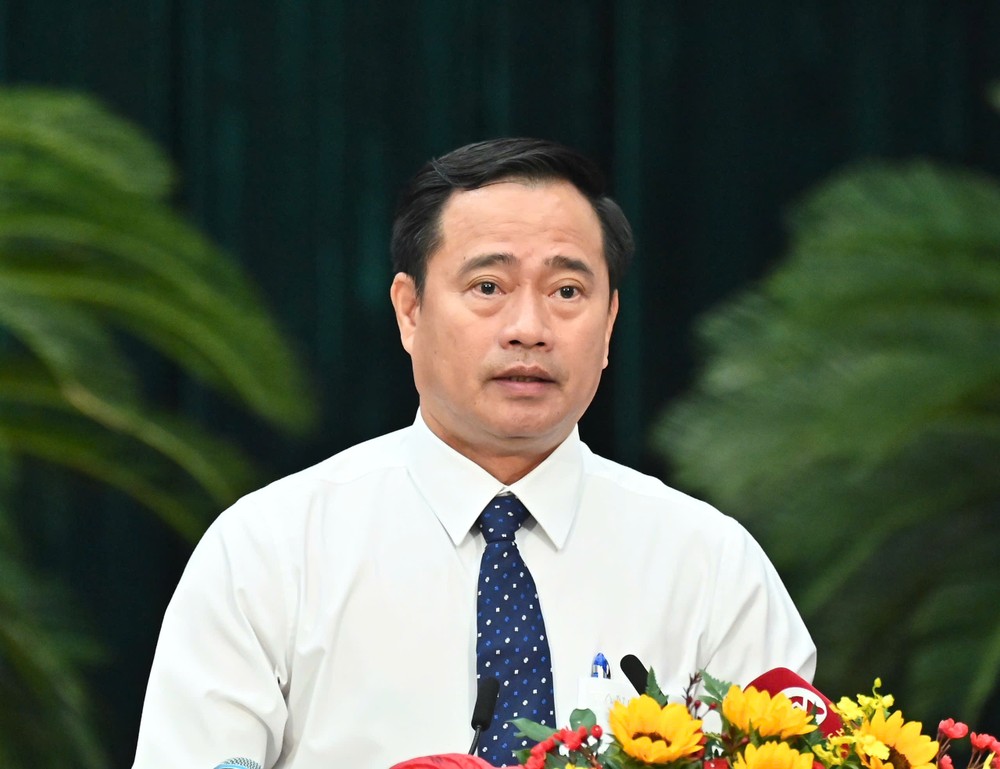
For cases monitored and directed by the Central Steering Committee on Anti-Corruption and Negativity, the City People's Procuracy coordinated the first-instance trials of 8 cases involving 418 defendants.
The HCMC People's Court has rigorously prosecuted the cases of Truong My Lan and accomplices in phases 1 and 2, as well as the case of Dang Viet Ha and accomplices at the Vehicle Registration Center.
The Prosecutor's Office noted an increase in drug-related crimes, initiating 2,643 cases involving 5,229 individuals, up by 925 cases from 2023. Key charges included drug possession, trafficking, and organizing illegal drug use.
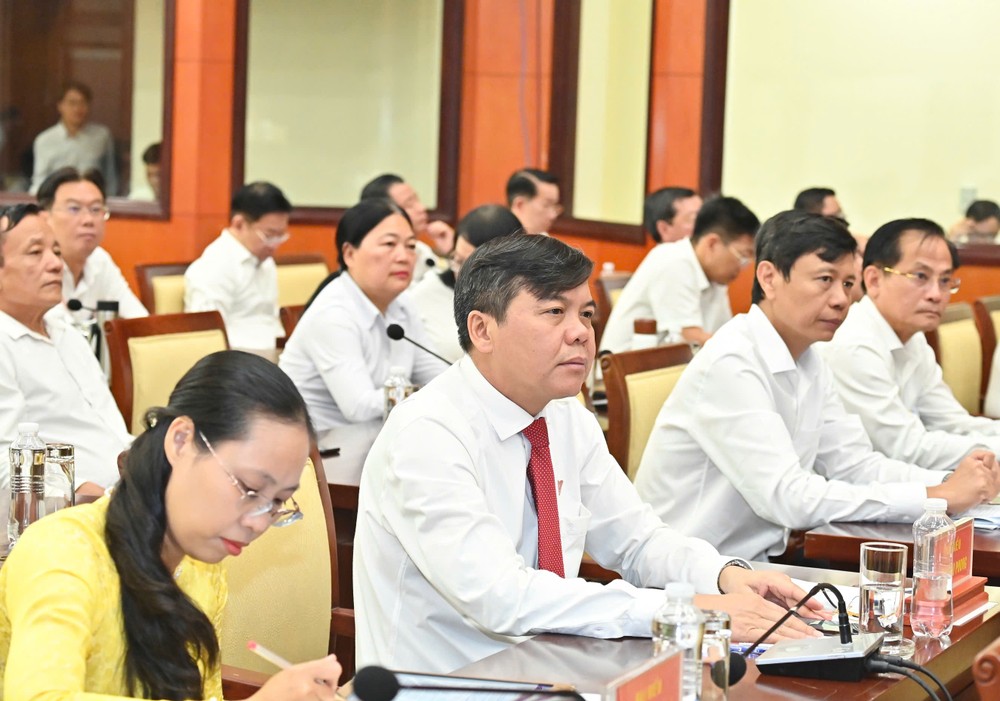
Civil, family, commercial, and labor cases totaled 57,969, an increase of 6,966. Of these, 48,287 cases were resolved, achieving an 83.3 percent resolution rate. However, many civil cases faced delays due to pending international judicial assistance and incomplete evidence. Mediation efforts resolved 30.4 percent of cases.
In administrative matters, courts handled 879 cases, resolving 660 (75.1 percent), with 219 pending. Although fewer cases were filed than in 2023, challenges arose due to the absence of local government representatives, hindering dialogue and evidence submission.
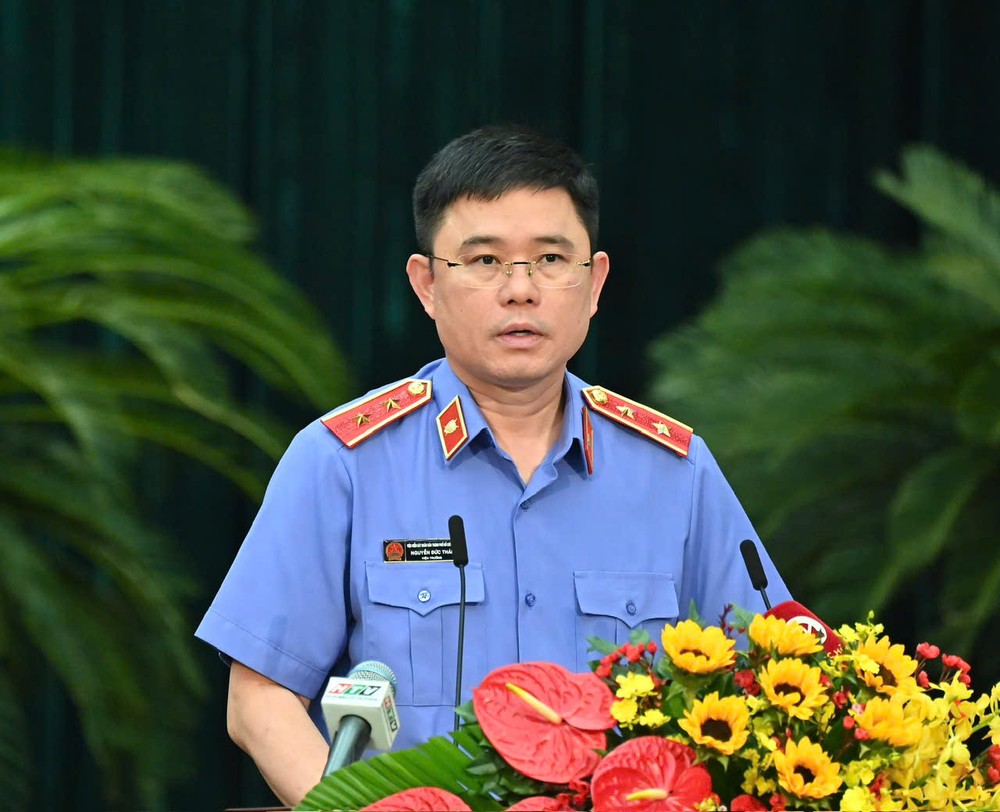
Looking ahead to 2025, Head of the HCMC People's Procuracy Nguyen Duc Thai highlighted the importance of collaboration among legal agencies to ensure effective prosecution and judicial oversight. These efforts aim to maintain political stability and advance the city's priorities, especially during the Party Congress at all levels.
2,732 personnel assigned to 41 reorganized wards
The HCMC People's Committee has submitted a proposal to allocate personnel for 41 wards reorganized under Resolution No.1278/NQ-UBTVQH15 by the National Assembly Standing Committee in 2025.
The proposal allocates 269 officials for these wards, 211 fewer than in 2024. Four newly merged wards will have up to eight officials each, including three deputy secretaries overseeing party affairs. Sixteen wards will have seven officials, while the remaining 21 will have six each.
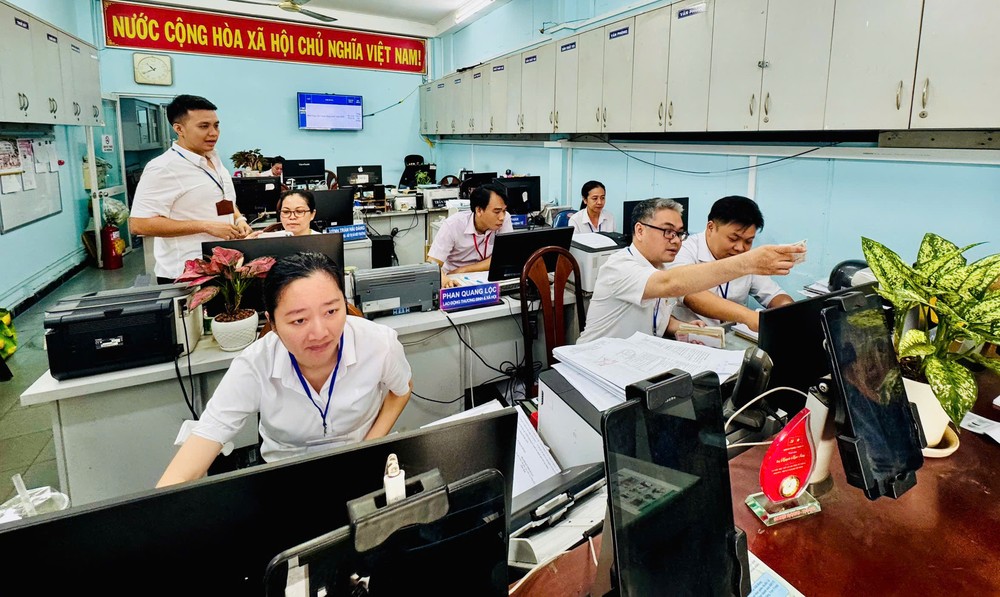
For civil servants, 1,046 positions are proposed, a reduction of 154 from the previous year. These roles include ward leaders and six key positions. Staffing for 37 wards will follow a cumulative approach based on current levels as of December 1, 2024.
Non-specialist personnel are set at 982, down by 70 compared to 2024. Allocation considers population size, economic activity, and geographic conditions, with adjustments for merged wards based on cumulative staffing.
In total, the 41 wards will have 2,732 personnel: 269 officials, 1,046 civil servants, and 982 non-specialist workers, marking a reduction of 435 positions compared to 2024.
As a result of Resolution No.1278, HCMC now has 22 district-level administrative units and 273 commune-level units, comprising 210 wards, 58 communes, and five townships—a net reduction of 39 wards.

